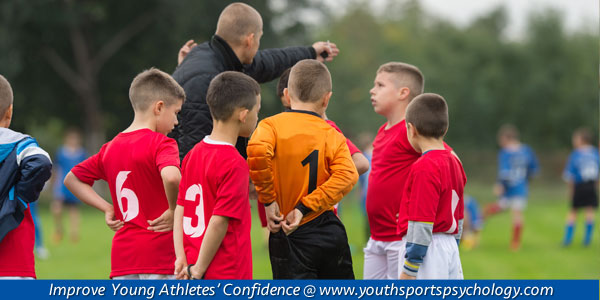
Tips to Ensure Your Kids Excel in Sports
We all want our kids to excel in sports. But exactly what does it mean to excel — and how can parents best help young athletes? It’s all about perspective.
Read on to learn great tips for ensuring your kids excel in ways that help them stay in sports and reap all its benefits.
Too often, well-meaning parents lose perspective in youth sports. We admit it. We’ve done it ourselves. We’ve found ourselves yelling from the sidelines, enrolling our kids in too many athletic camps, traveling teams and training sessions. We’ve criticized coaches and felt competitive and jealous about the success of our kids’ team-mates—just to name a few no-nos.
Sure, we’re all human.
But here’s the problem:
If we can’t retain some perspective about youth sports, our kids are the ones who suffer.
They get burnt out and lose their love of sports. Says Dave Giffels, a coach who speaks to basketball and football teams, “Parents are grooming kids to play Division 1 or be big-time players. They lose perspective on whether their kids will be the next Michael Jordan. They lose focus on what sports are all about.”
Here at Kids’ Sports Psychology, we like to remind parents about what sports are all about. We remind you that kids learn life lessons from sports. They learn about working as a team. They acquire important social skills and they discover how to lose with grace–just to name a few. All these skills help them succeed as adults and in the workplace.
So, we’re back to the original question:
What does it mean to “excel?”
We believe excelling means learning these critical life lessons, having fun and learning new skills. How can we as parents best ensure our young athletes excel and get the most out of youth sports?
First of all, take a step back. Ask yourself:
Are you too invested in your child’s success?
Be honest with yourself. Understand that if you’re too invested, your child may feel pressured or may play simply to please you. These will undermine the child’s performance and enjoyment of sports.
Second, try to strike that delicate balance between being over-invested and under-invested. Be a good cheerleader, which means cheer for all the members of the team–not just your child. Support the coach. Don’t try to coach your child yourself–especially during practices and games. If you do, your child will feel confused about which “coach” to listen to.
Help your child focus on playing in the moment, rather than on the score or win. This will help your child take more risks, perform better and enjoy sports more. If you’d like to learn more about being the ultimate sports parent, we’ve got loads of resources for you at Kids’ Sports Psychology.
Related Articles on Youth Sports:
- How Sports Parents Can Help Kids Relax
- Important Dos and Don’ts for Sports Parents Before Games
- Why Sports Parents Should Drop the Sports Fan Mindset
*Subscribe to The Sports Psychology Podcast on iTunes
*Subscribe to The Sports Psychology Podcast on Spotify
Help Young Athletes Boost Confidence in Sports!
Every day, we receive letters from parents like you who want their children and teens to excel in sports. However, these parents can see fear, doubt, and frustration on the faces of their kids who struggle with the “inner” game of sports. But these parents have no idea how to help their kids overcome the worries, expectations and self-defeating thoughts that prevent their young athletes from feeling confident and successful.
You can benefit from our 15-plus years’ of work in sports psychology and sports parenting research. Now, you can tap into our secrets to sports success through a cutting-edge, 14-day program that helps young athletes overcome the top “mental game” challenges that sports parents face—and the top challenges young athletes face.


Is a parent over invested in the child’s success is a great question for each parent to honestly explore. The dream of excelling must be the child’s dream and not the parent. If the parent forces his or her dream on the child, it will end up in great heartache for both parties.
This is always a great challenge for parents. How do they support without interferring? How do they encourage without forcing? The parent must always remind themselves why the child is playing. Is it for his/her enjoyment? Is it because the child WANTS to play? If it is not because of these reasons, then you have a serious problem where the parent must be honest with himself and seek other interest for the child. Sprist are supposed to be fun, not a chore.